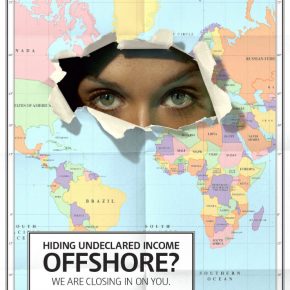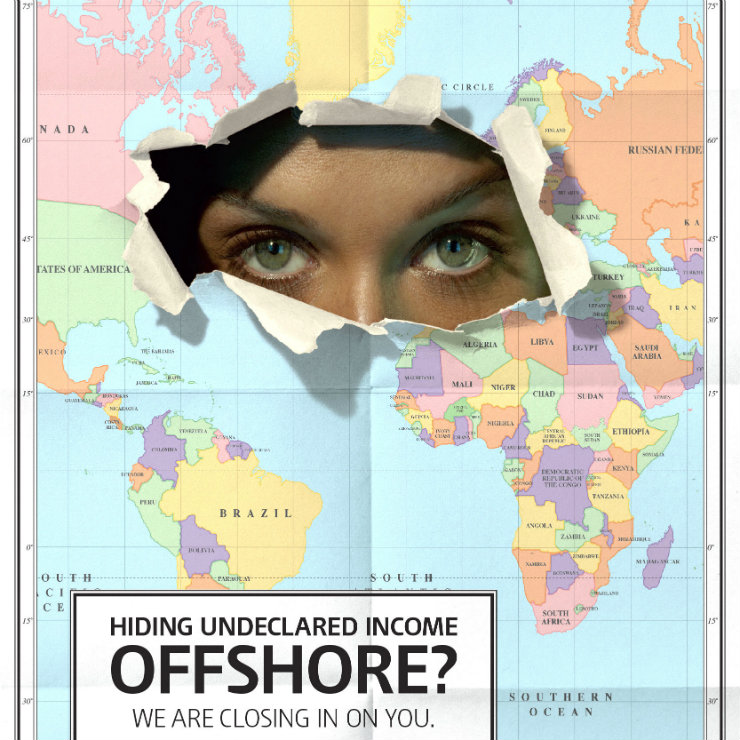
(H.M. Revenue & Customs, CC BY 2.0)
Now, after a year-long inquiry, the Parliament’s special tax committee adopted a detailed roadmap towards fairer and more effective taxation, a Parliament’s press release said.
Among various recommendations there are: a need to work on a proposal for a European financial police force, an AML watchdog, a global tax body within the UN, and a system of protecting whistleblowers and investigative journalists investigating tax abuses.
However, the 154-page report features only recommendations which are non-binding for the EU Parliament, let alone the individual member states.
Why now?
The need to form a special committee to investigate tax abuses perpetrated in all EU member states was prompted by the results of a series of investigations into various tax abuses and money-laundering operations perpetrated inside the European single market.
As far as tax abuses are concerned, some of the worldwide revelations by journalist and whistleblowers most known by the general public include the Luxleaks, Panama papers and Paradise papers.
Many of the most complex investigations relating to money-laundering schemes have been carried out by the Organized Crime and Corruption Reporting Project (OCCRP). This non-profit media organization, which provides an investigative reporting platform, has published a series of investigations known as Laundromats in which it exposes these various fraudulent schemes.
After a number of investigations revealing how illegally gotten gains from authoritarian countries get laundered with the help of various western banks, OCCRP recently published one of its deepest dives into Russia’s criminal financial underworld – the so called “Troika Laundromat” (read more).
The investigation is based on leaked banking transactions obtained by OCCRP and the Lithuanian news site 15min.lt. The complete dataset includes more than 1.3 million banking transactions from 238,000 natural persons and private entities, as well as thousands of emails, contracts, and company registration forms. It shows a complex financial web composed of at least 75 different offshore shell companies that functioned from 2006 to 2013.
Troublemakers
The report highlights the fact that seven member states have been criticized by the European Commission for shortcomings in their tax systems. These states are: Belgium, Cyprus, Hungary, Ireland, Luxembourg, Malta and the Netherlands. The Commission has criticized these countries, saying that they undermine the integrity of the European single market by facilitating aggressive tax planning globally.
A recent study by Oxfam International has identified five EU Member States as corporate tax havens: Cyprus, Ireland, Luxemburg, Malta and the Netherlands.
The special tax Committee’s latest report adds Belgium and Hungary to the list, stating that those countries “display traits of a tax haven and facilitate aggressive tax planning.”
The report also highlights that “the high level of inward and outward FDI as a percentage of GDP in seven Member States (Belgium, Cyprus, Hungary, Ireland, Luxemburg, Malta and the Netherlands) can only to a limited extent be explained by real economic activities taking place in these Member States.” It further notes that “such FDI is usually held by special purpose entities (SPEs) that often server to exploit loopholes.”
The report also points to Malta and Cyprus, noting that these two southern European countries pose a high risk to the rest of the EU members by their “golden visa” programs. According to a statement made by the EU Commission, wealthy candidates for residency or citizenship in those countries are not subjected to sufficient security and background checks to prevent them from posing security risks.
According to the authors of the report, the EU as a whole needs to do much more to tackle tax frauds perpetrated across the Union. “Europe has a serious money laundering and tax fraud problem. We have the world’s largest, richest and most integrated single market with free movement of capital, but little to no effective cross-border supervision and 28 differing national anti-money laundering and anti-tax fraud provisions,” one of the co-rapporteur, Jeppe Kofod from Denmark, said.
“This creates a string of loopholes, which are far too easy for criminals to abuse to launder vast amounts of money as in the Danske Bank scandal, or design highly profitable tax theft schemes like CumEx. We need tougher EU-level regulation, harsh sanctions on banks facilitating financial crimes, and a new European financial police within Europol,” he added.
Chances for cooperation on an EU level
To tackle cross-border tax evasion schemes and other financial crimes, the special tax Committee urged the European Commission to create a European financial police force as well as an anti-money laundering watchdog. Such a unit would be created within Europol, the EU’s police agency.
According to Reuters, the report was backed by the largest political parties in the EU Parliament, including the conservative and the socialist parties. However, judging from the fact that EU member states find it hard to agree on their own common tax policy, the chances for a tighter pan-European cooperation on anti-tax fraud operations are rather slim.
Filip Brokeš is an analyst and a journalist specializing in international relations.


